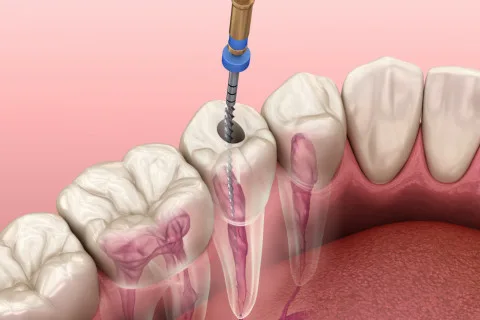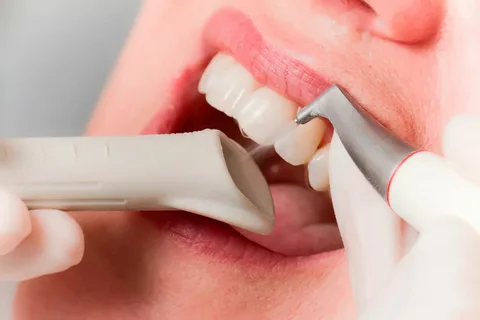TREATMENTS
Root Canal Treatment in Lahore
Root Canal Teeth
A root canal is a dental procedure that is performed to treat and save a tooth that is severely damaged or infected. Inside each tooth, there is a pulp chamber containing nerves, blood vessels, and connective tissues. The pulp extends into the roots through narrow channels called root canals.The pulp is essential during tooth development but can be removed once the tooth is fully mature.
.

- Functional Impairment
- Aesthetic Concerns
- Speech Difficulties
- Preventing Tooth Migration
- Preserving Bone Health
- Improving Oral Health
- List Item #1
- List Item #2
- List Item #3
Types of Root Canal

Standard Root Canal Treatment

Apicoectomy
An apicoectomy is a surgical procedure that involves removing the tip of the tooth’s root along with any infected tissue. This may be recommended when a standard root canal has not effectively resolved the issue.

Vital Pulp Therapy
Vital pulp therapy may be considered in cases where the pulp is injured but not extensively infected. It involves treating the affected pulp to maintain its vitality and function.

Pulpotomy
A pulpotomy is a partial removal of the pulp, often performed on primary (baby) teeth. It involves removing the infected portion of the pulp from the crown of the tooth while leaving the pulp in the roots intact.
CAUSES OF ROOT CANAL
Root canal treatment is typically needed when the dental pulp, the innermost part of the tooth containing nerves, blood vessels, and connective tissues, becomes damaged, infected.
Tooth Decay
Untreated tooth decay is a common cause of root canal problems.
Dental Trauma
Physical trauma to a tooth, such as a severe impact or injury, can damage the pulp and may lead to inflammation or infection.
Abscessed Tooth
An untreated dental infection can progress to an abscess, which is a pocket of pus that forms at the root of the tooth.
Pediatric Dentistry
Sedation is often employed in pediatric dentistry to help children .
ROOT CANAL
Symptoms of Root Canal
- Oral Root Canal
- Nitrous Oxide
- Intravenous
- Pain Management
- Medical Conditions
- Bone Loss
How To Take Care Missing Teeth
Taking care of your oral health, especially when you have missing teeth, is important to prevent complications and maintain overall well-being. Here are some tips on how to care for missing teeth:
Floss Regularly: Floss between your remaining natural teeth and around dental appliances to remove plaque and prevent gum disease. If you have dental bridges or implants, use floss threaders or interdental brushes for effective cleaning.
Use an Antiseptic Mouthwash: Rinse your mouth with an antiseptic or fluoride mouthwash to help control bacteria and maintain oral hygiene. Consult your dentist for recommendations based on your specific needs.
Visit Your Dentist Regularly: Schedule regular dental check-ups, even if you have missing teeth. Your dentist can monitor the health of your remaining teeth, assess your gum health, and address any concerns promptly.
Consider Dental Appliances If you have missing teeth, your dentist may recommend dental appliances such as bridges, dentures, or implants to restore function and aesthetics. Follow your dentist’s instructions for care and maintenance of these appliances.
FAQs
A root canal is a dental procedure that involves removing infected or damaged pulp from the inside of a tooth, followed by cleaning, disinfecting, and sealing the root canals.
A root canal is necessary when the pulp inside a tooth becomes infected or damaged due to deep decay, trauma, or other dental issues.
Modern root canal procedures are performed under local anesthesia, making the process generally comfortable, with minimal pain or discomfort.
After a root canal, the tooth is typically restored with a crown to strengthen and protect it, restoring normal function.
The main alternative to a root canal is tooth extraction, but preserving the natural tooth with a root canal is generally preferred for maintaining oral health.
A tooth that undergoes a root canal may become more brittle over time. However, the placement of a crown after the procedure helps strengthen and protect the tooth.

